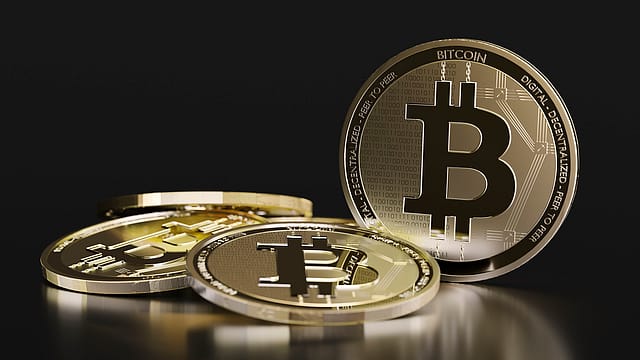Crypto: Ukraine’s lethal weapon against Russia
ADVERTISEMENT

For a nation whose military might has been dwarfed by Russia as the war enters its 73rd day, Ukraine has resorted to the use of cryptocurrencies to pose stiff resistance to its neighbour, with the defending country raising nearly $100 million from digital currencies as donations.
Ukraine’s move to turn to a decentralised method of accepting financial aid has broadened the East European country’s crowdfunding initiative to cover most crypto assets. It is a further nod to the potential of cryptocurrencies to act as a currency mechanism for financial transactions.
Crypto use an economic breakthrough: Ukraine minister
According to Alex Bornyakov, Ukraine's deputy minister for digital transformation, $60 mn of the $100 mn was received in the primary fund managed by Kuna, a Ukrainian cryptocurrency exchange.
Moreover, Bornyakov, in an emergency online briefing recently, said in the briefing that Ukraine's President Zelensky believes the usage of cryptocurrency might be an 'economic breakthrough'.
According to blockchain analytics firm Elliptic, over 120,000 crypto asset donations have been made since the start of the Russian invasion, including a $5.8 mn by Polkadot founder Gavin Wood, and a CryptoPunk NFT worth over $200,000.
According to Pratik Gauri, founder, and CEO of 5ire, in situations where governments are in chaos, it is difficult to rely on traditional banks and when there is fear of surveillance, a relatively anonymous system where no government is involved is appealing.
January 2026
Netflix, which has been in India for a decade, has successfully struck a balance between high-class premium content and pricing that attracts a range of customers. Find out how the U.S. streaming giant evolved in India, plus an exclusive interview with CEO Ted Sarandos. Also read about the Best Investments for 2026, and how rising growth and easing inflation will come in handy for finance minister Nirmala Sitharaman as she prepares Budget 2026.
“The use of crypto by both good and evil in a conflict is becoming more pronounced. As an example, crypto is often used by bad actors. Russia could exploit it to avoid sanctions, which are currently the primary weapon being employed by the US and its allies against Russia. Russian prevalence in cyberwarfare against the West also means people holding crypto could be a target for cyberattacks. Although one of the main attractions of crypto is that it is supposed to be anonymous, it is not foolproof,” Gauri says.
Majority donations to Ukraine are in Bitcoin and Ether
The majority of donations received to date have been in Bitcoin and Ether, although the US dollar stablecoins contribute a significant proportion. But it is not only crypto assets that are being donated, people are also sending NFTs to the Ukrainian government’s Ethereum account.
Donations received in cryptos have provided an immediate relief for the country, which would otherwise rely on cumbersome traditional fundraising processes and the borderless financial system proved to be a boon in this regard, says Raghav Gupta, founder, EquiDei.
The war also set the stage for mass adoption of digital currencies, as both the Russian and Ukrainian citizens turned to crypto to protect their assets, he adds.
While cryptos have turned out to be an excellent way to donate money quickly, facts like the actual usability of crypto should be considered – while it may be challenging to set up a wallet and receive cryptos, it is much more challenging to use crypto in day-to-day life.
Another drawback for crypto could be unaccountability. If an exchange allows the trading of cryptos without KYC, it might open the room for fraud and if it is very restrictive, people will not be able to use it – it, therefore, needs to be balanced accordingly.
Experts say that making crypto a standard for fund distribution is not enough and what needs to be considered is how it can be used in day-to-day life like grocery buying.
"Most problems related to cryptos are solvable. With some form of standardisation and liberalisation, cryptocurrencies can become a standard. I think of cryptocurrency as gold in Roman Empire. A handful of countries might not accept crypto, but it can indeed become a way of transferring money, if not using the money," Aliasgar Merchant, developer relations engineer at Ignite says.
The Ukrainian government is accepting donations in Bitcoin, Ethereum, USDT, Polkadot, and Dogecoin. Apart from the government, certain nonprofits and philanthropic organisations, like Come Back Alive, Ukraine DAO, Endaoment, and the Kyiv Independent, an English-language Ukrainian newspaper that has been covering the battle on its Twitter feed, are accepting cryptocurrency donations directly.
